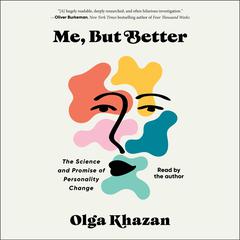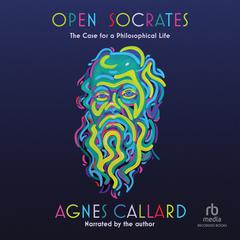 Play Audiobook Sample
Play Audiobook Sample
Trying Not to Try: The Art and Science of Spontaneity Audiobook
 Play Audiobook Sample
Play Audiobook Sample
Quick Stats About this Audiobook
Total Audiobook Chapters:
Longest Chapter Length:
Shortest Chapter Length:
Average Chapter Length:
Audiobooks by this Author:
Publisher Description
A deeply original exploration of the power of spontaneity—an ancient Chinese ideal that cognitive scientists are only now beginning to understand—and why it is so essential to our well-being Why is it always hard to fall asleep the night before an important meeting? Or be charming and relaxed on a first date? What is it about a politician who seems wooden or a comedian whose jokes fall flat or an athlete who chokes? In all of these cases, striving seems to backfire. In Trying Not To Try, Edward Slingerland explains why we find spontaneity so elusive, and shows how early Chinese thought points the way to happier, more authentic lives. We’ve long been told that the way to achieve our goals is through careful reasoning and conscious effort. But recent research suggests that many aspects of a satisfying life, like happiness and spontaneity, are best pursued indirectly. The early Chinese philosophers knew this, and they wrote extensively about an effortless way of being in the world, which they called wu-wei (ooo-way). They believed it was the source of all success in life, and they developed various strategies for getting it and hanging on to it. With clarity and wit, Slingerland introduces us to these thinkers and the marvelous characters in their texts, from the butcher whose blade glides effortlessly through an ox to the wood carver who sees his sculpture simply emerge from a solid block. Slingerland uncovers a direct line from wu-wei to the Force in Star Wars, explains why wu-wei is more powerful than flow, and tells us what it all means for getting a date. He also shows how new research reveals what’s happening in the brain when we’re in a state of wu-wei—why it makes us happy and effective and trustworthy, and how it might have even made civilization possible. Through stories of mythical creatures and drunken cart riders, jazz musicians and Japanese motorcycle gangs, Slingerland effortlessly blends Eastern thought and cutting-edge science to show us how we can live more fulfilling lives. Trying Not To Try is mind-expanding and deeply pleasurable, the perfect antidote to our striving modern culture. Figure 1: UPPER lower lower upper LOWER
Download and start listening now!
“Marc Cashman narrates in perfect attunement with the author’s ideas on Chinese philosophy and the historical and social science context of spontaneity. According to Slingerland, centered, confident mind states are the template for the calm and powerful operating style that Western psychologists call flow. Cashman’s voice is full of boyish enthusiasm, but his intelligent engagement never upstages the excellent writing or the author’s rich perspective on human intention.”
— AudioFile
Quotes
-
“Trying Not to Try navigates the confluence of two mighty rivers: the burgeoning science of the mind and the classic wisdom of China’s Taoist and Confucian traditions. This is a thoughtful, grounded book about traditions that should be better known—and more often put into practice—in the West.”
— Daniel H. Pink, New York Times bestselling author of Drive -
“East meets West in Edward Slingerland’s Trying Not to Try, an entertaining and thought-provoking account of how the principles of ancient Chinese thought continue to apply—indeed, may apply even more—in modern times. Slingerland will make you reconsider your approach to everyday life and will challenge you to approach success—and failure—in a new, refreshing and reenergizing light.”
— Maria Konnikova, New York Times bestselling author of Mastermind
Trying Not to Try Listener Reviews
Be the first to write a review about this audiobook!
About Edward Slingerland
Edward Slingerland is a professor of Asian Studies and the co-director of the Centre for the Study of Human Evolution, Cognition, and Culture at the University of British Columbia. He has written several scholarly books, including What Science Offers the Humanities. He lives in Vancouver with his wife and daughter.
About Marc Cashman
Marc Cashman, Earphones Award–winning narrator, was named one of the “Best Voices of the Year” by AudioFile magazine. His voice can be heard on radio, television, film, and video games. He also instructs voice actors through his classes, The Cashman Cache of Voice-Acting Techniques, in Los Angeles.























